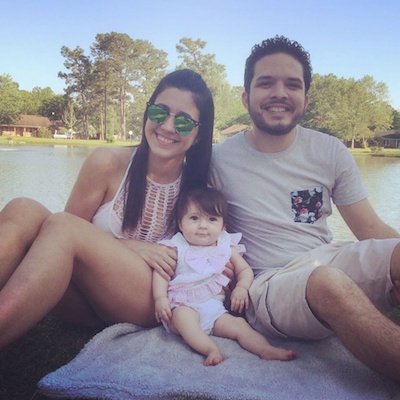 A special contribution by guest blogger Loraine Hernandez
A special contribution by guest blogger Loraine Hernandez
When Mila was born, everything felt uncertain. The early days were marked by fear, unanswered questions, and a hospital experience that left her mother struggling to imagine what the future might hold. There were no expectations, only survival.
“When she was almost three months old and I received the diagnosis, my world was shattered,” she remembers.
But as the weeks passed, Mila began to show everyone who she was — a baby full of life, determination, and quiet resilience. The absence of expectations slowly transformed into awe, as her mother watched her grow stronger day by day.
“From not having expectations, to see her how full of life she is now… saying that she has exceeded my expectations doesn't do her any justice.”
Bringing Mila home was terrifying. She couldn’t take a bottle, had no feeding tube, and every moment felt like walking a tightrope. But in the middle of fear and exhaustion, instinct emerged. Remembering how Mila had taken medicine through a syringe in the NICU, her mother tried the same approach at home. Slowly, patiently, she fed her daughter that way — and it worked. Mila began gaining weight. They never returned to the NICU.
“It is truly amazing how all of a sudden you know how to take care of your child,” she says. “You never know how strong you are, until being strong is your only option.”
Though family and friends provided comfort, it was the PWS community that truly changed everything. A late-night Facebook search led her to other parents walking the same road, offering understanding, guidance, and hope. Through them, she found connection, support, and reassurance that she and Mila were not alone.
With time, her perspective shifted. She learned to celebrate every milestone, to recognize that there are no small victories, and to embrace patience as a form of love. To parents just beginning this journey, she believes in taking life one day at a time and letting love guide every step.
Her hope for the future is rooted in research — in the belief that science will continue to open doors and create better possibilities for children like Mila.
Without hesitation, she speaks of gratitude. For her daughter. For the lessons. For the transformation.
“She came to change my life. She came into this world to make it a better place.”
Through Mila, she has learned that joy lives in the smallest moments, that strength can be born from fear, and that possibility exists even when the world only sees limitation. Where others see diagnosis, she sees potential — and where others would surrender, she chooses to believe in what can be.
Do you have a story of hope to share with others about your experiences with PWS? Send it to us!








